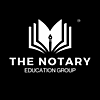Notaries Cannot Advise Signers: Understanding UPL, Witness Requirements, and Document Drafting Requests
Notaries Cannot Advise Signers: Understanding UPL, Witness Requirements, and Document Drafting Requests
As a notary public, your primary responsibility is to serve as an impartial witness to important transactions and documents. However, notaries often encounter situations where signers request guidance or assistance beyond their authorized duties. Whether it’s explaining legal documents, confirming whether witnesses are required, or even drafting documents, stepping outside your designated role can result in accusations of Unauthorized Practice of Law (UPL). This blog will guide notaries on maintaining compliance and professionalism when faced with these requests.
What Is the Role of a Notary?
What Is the Role of a Notary?
Notaries are tasked with verifying identities, witnessing signatures, administering oaths or affirmations, and sometimes certifying copies of certain documents (depending on state laws). However, notaries must remain neutral parties and avoid actions that could be perceived as providing legal advice. The notary’s role is vital but clearly defined to protect both the notary and the signer.
What Notaries Cannot Do:
Interpret or explain document content.
Provide recommendations on which documents to use.
Research or confirm legal requirements (e.g., witness needs).
Draft, fill out, or complete legal documents unless explicitly allowed under specific state laws.
Understanding UPL and Its Implications
Understanding UPL and Its Implications
What Is Unauthorized Practice of Law (UPL)?
Unauthorized Practice of Law occurs when an individual offers legal advice or services without being licensed as an attorney. For notaries, actions such as interpreting legal documents, advising on legal matters, or drafting documents for signers can be perceived as UPL. This is a serious offense with significant consequences, including:
Fines and legal penalties.
Suspension or revocation of your notary commission.
Damage to your professional reputation.
Examples of UPL for Notaries:
Explaining the legal implications of a document.
Advising signers on which document to use for their situation.
Drafting a document or modifying templates for signers.
Researching and confirming witness requirements for a document.
To avoid UPL, notaries must remain neutral and avoid giving signers any impression that they are offering legal advice.
Can Researching Witness Requirements Be UPL?
Can Researching Witness Requirements Be UPL?
Notaries often handle documents that require witnesses. However, if the document will be recorded in a state where the notary is not commissioned and it is not evident that witnesses are required, the notary must not research the outside state’s rules or regulations. Instead, the notary may bring to the signer’s attention that this type of document may require witnesses and suggest the signer follow up to confirm.
Why Researching Witness Requirements Outside Your State Is Risky:
Legal Interpretation: Determining witness requirements for another state’s document often requires knowledge of that state’s laws or legal practices, which is beyond a notary’s scope.
Perceived Advice: Signers may interpret any definitive answer as legal advice, potentially exposing the notary to UPL allegations.
How to Handle Witness Questions Professionally:
Acknowledge Potential Witness Requirements:
Example: “This type of document may require witnesses. I recommend verifying this with the entity requesting the document or consulting a legal professional.”
Avoid Researching Out-of-State Rules:
Example: “Since this document may be recorded outside my commissioned state, I cannot confirm witness requirements. Please follow up with a professional familiar with that state’s laws.”
By staying neutral and avoiding definitive answers, you can fulfill your role without crossing into UPL.
Responding to Document Drafting Requests
Responding to Document Drafting Requests
Another common request from signers is for notaries to draft documents or modify templates. This includes documents like powers of attorney, affidavits, or agreements.
Why Notaries Cannot Draft Documents:
Drafting documents is considered a legal service reserved for attorneys. Creating or modifying legal content often involves interpreting laws and tailoring the document to the signer’s needs—activities that notaries are not authorized to perform.
How to Handle Drafting Requests:
Decline Politely:
Example: “I’m unable to draft or prepare legal documents. You’ll need to consult an attorney or legal professional for assistance.”
Refer to Appropriate Resources:
Keep a list of attorneys, legal aid services, or document preparers to provide signers with professional options.
Offer Guidance Without Overstepping:
Example: “I recommend reaching out to the person or entity requesting this document for any templates or instructions.”
Best Practices for Notaries
Best Practices for Notaries
To maintain professionalism and avoid UPL accusations, consider adopting the following best practices:
Know Your State’s Laws: Familiarize yourself with general state requirements for common documents but refrain from interpreting or applying these laws.
Use Scripts for Common Scenarios: Prepare polite, professional responses to frequently asked questions to avoid being caught off guard.
Provide Referrals: Keep a resource list of local attorneys or legal professionals to redirect signers when necessary.
Practice Setting Boundaries: Use disclaimers to clarify your role and protect yourself from overstepping your authority.
Example: “I’m here to notarize your document, but I cannot provide legal advice or confirm its requirements.”
Key Takeaways
Key Takeaways
Notaries must stay within the scope of their duties and avoid giving legal advice or drafting documents.
Researching witness requirements or answering document-related questions can lead to UPL accusations if perceived as legal guidance.
Always redirect signers to appropriate professionals and use disclaimers to maintain neutrality.
By adhering to these principles, you can protect yourself from potential legal issues while maintaining your integrity and professionalism as a notary.
If you found this blog helpful, be sure to subscribe for more notary tips and insights! For additional support or resources, visit or explore our offerings at “The Notary Education Group.”

